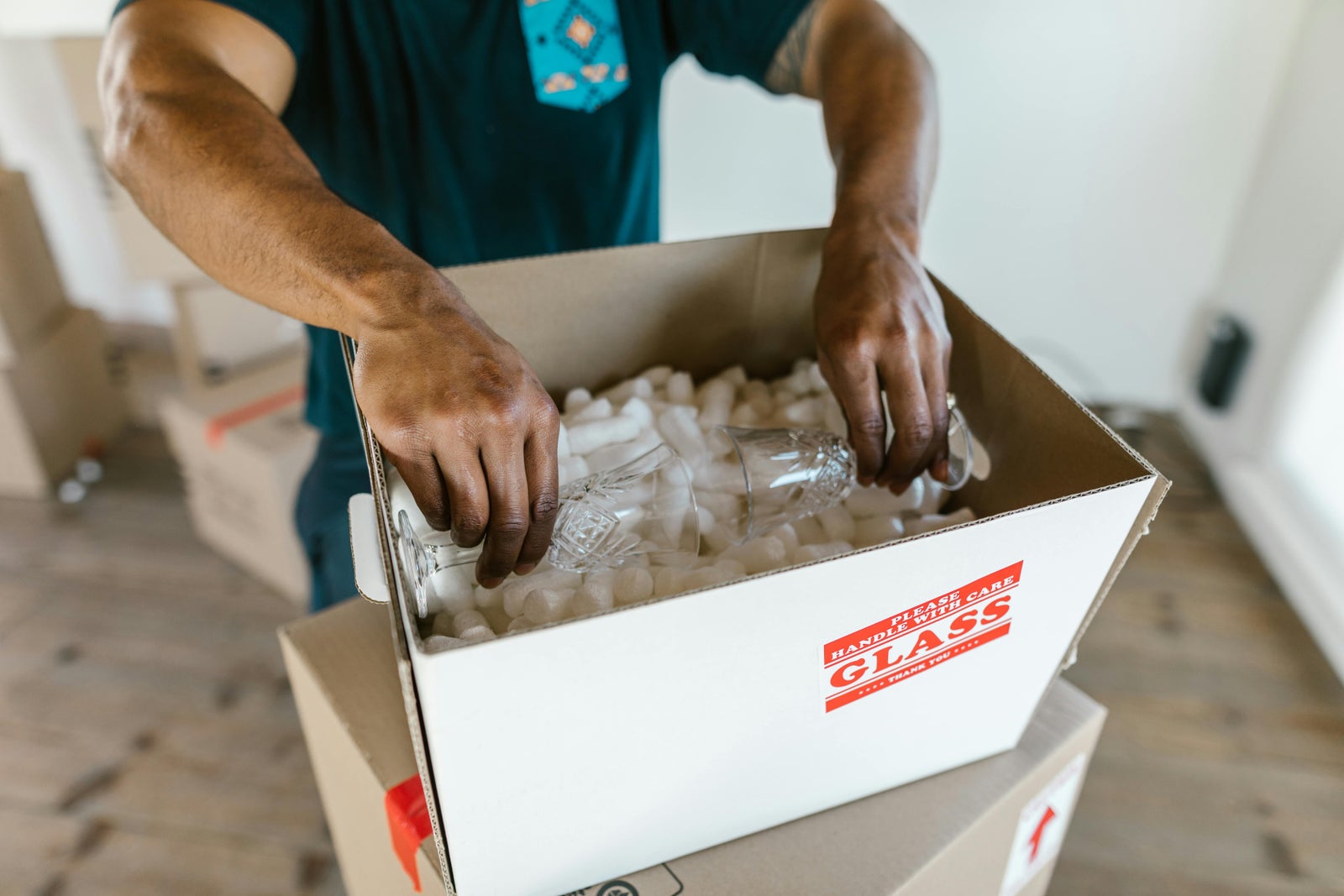
The idea of moving into a new house is an exciting prospect for most; a fresh space to make your own, a new neighbourhood to explore, and the feeling of starting out with a clean slate. The actual moving process, however…almost everyone would agree that’s more stressful than fun.
In fact, moving is often ranked as one of life’s most stressful events. It’s not difficult to see why–logistically, moving can be a nightmare, and financially it can be straining. Thankfully, the moving process can be made easier with careful planning and budgeting.
What to Expect Financially
If you’ve never bought a house before, you may be surprised at the unexpected costs you can incur (check out our article on Understanding Closing Costs for an idea). Moving is no exception and should be budgeted for in a similar way.

Packing Materials
When you’re moving, all that’s on your mind is boxes, boxes, boxes! You’ll need various packing materials to move your items safely from one home to the other, including extra items like bubble wrap or padding for those delicate objects.
When it comes to budgeting for packing materials, you can save money by obtaining used boxes from around town. Many stores frequently unload their merchandise from boxes that they then recycle, so there’s no harm in asking if you can take the boxes off their hands.
Storage Costs
In an ideal world, your moving out date at your current residence coincides with your moving in date at your new residence. Unfortunately, this isn’t always how it works out, and you may find that you need to store some of your stuff in between moves.
Typically, self-storage costs in Canada will run you about $150-$250 per month. Portable containers cost around the same to rent, but delivery and pickup can add an additional $100-$200.
Storage costs will vary depending on the size of the unit you need, so don’t purchase a large unit if it’s not necessary. You can further cut down on costs by sharing a unit with someone else, like a family member or friend, or ensuring you only rent a storage unit for a month or two.

Hiring Professional Movers or Moving Yourself
One of the biggest costs of moving is moving day itself. You can either choose to rent a truck and move your things yourself or hire professional movers.
Renting a truck can cost anywhere from $100-$300 depending on where you’re moving. You will also have to pay fuel, mileage, and insurance charges, as well as rental items you may need such as moving straps or a dolly.
Hiring professional movers makes the process a lot less hands off for you, but it comes at a cost. A moving company will typically charge you around $100-$150 an hour, with a minimum of three or four hours. That cost can go up if you’re hiring full service movers who pack and unload everything into your new home, as well as if you have items that require special care.

Extra Costs
There are many additional costs that can creep in when moving, and they can add up. One of the most common costs you could be facing are cleaning costs, which can run you anywhere from $100-$300 or more.
You may also want insurance for your move that covers costs for damages or loss. Your homeowners insurance can cover some things during your move (so long as you continue to insure your new home with your current bank), but it will typically not cover damages that happen during transit. You may want to look into separate insurance specifically for moving if you want full coverage.
If you’re moving somewhere far away, such as across provinces, you’ll want to factor in the cost of travel. This will include accommodations, gas, and the costs of food. These can add up, so be sure to budget for them.
Source
